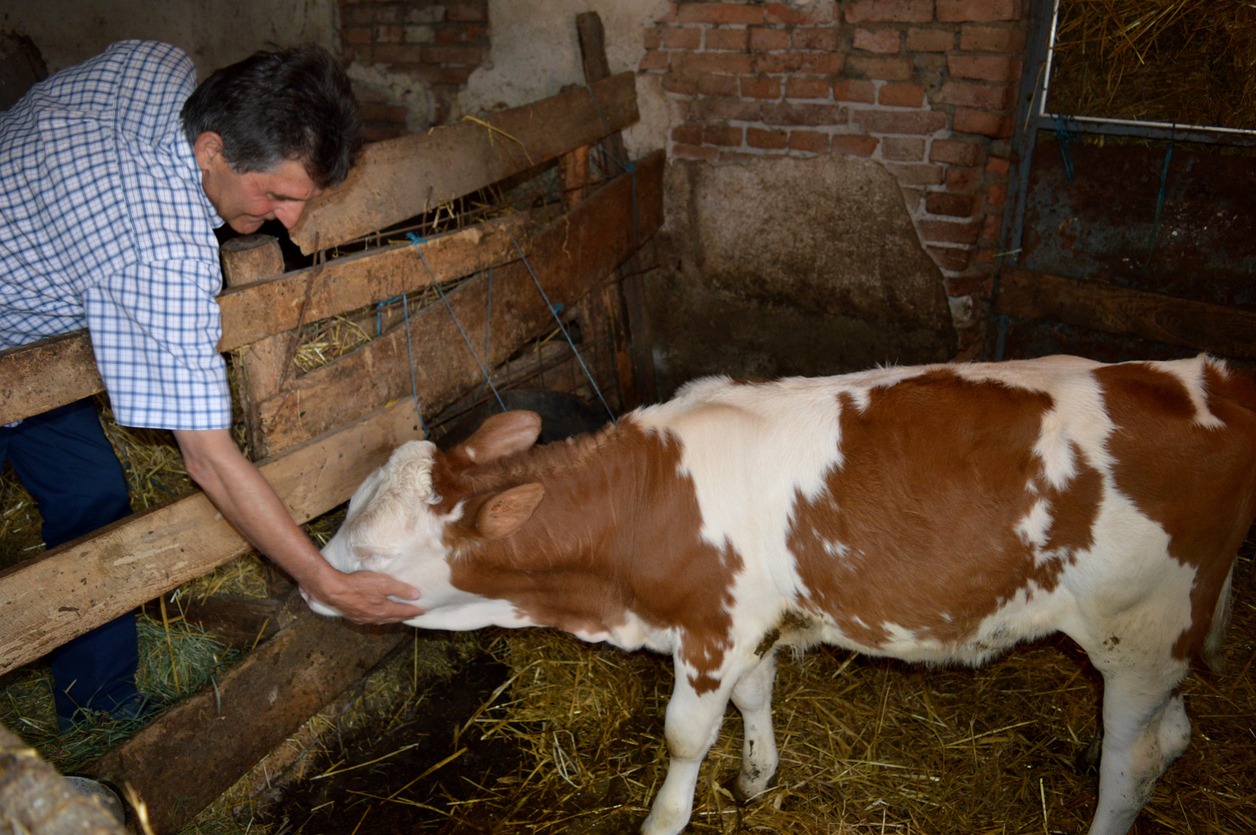Homestead Evening Chores: Essential Tasks for a Smooth Routine

Homesteading is more than a lifestyle—it’s a commitment to self-sufficiency and a deeper connection with the land. Evening chores, while routine, play a vital role in keeping your homestead productive and organized. They provide an opportunity to care for animals, tend to crops, and prepare for the day ahead.
A smooth evening routine is about more than just completing tasks. It’s about creating a rhythm that ensures your homestead thrives while fostering teamwork and a sense of accomplishment. Whether you’re a seasoned homesteader or just starting out, this guide will help you develop an efficient evening routine tailored to your needs.
1. Tending to Livestock

Livestock care is the cornerstone of homestead management, and evening is a critical time to ensure your animals are healthy, fed, and secure for the night. Animals thrive on consistency, and sticking to a reliable schedule not only promotes their well-being but also streamlines your chores.
Key Tasks:
- Feed and Water: Provide each animal with the appropriate feed type and quantity. For example, poultry need a mix of grains, while larger livestock like cows or goats require hay or silage. Pay attention to their behavior during feeding; a change in appetite could indicate a health issue. Fresh, clean water is just as essential—make sure troughs are full and free of debris. For animals prone to spilling water, consider investing in spill-proof containers.
- Observe for Health Issues: Take a moment to observe each animal for signs of discomfort, illness, or injury. Look for changes in posture, unusual vocalizations, or physical abnormalities like swelling. These quick checks can save you from dealing with larger problems later.
- Secure Shelters: Predators are more active at night, so ensuring your animal enclosures are secure is non-negotiable. Inspect fencing, gates, and coop latches to prevent unwanted intrusions. Make sure bedding materials like straw or wood shavings are fresh and dry for added comfort.
Family Involvement:
Evening chores provide a wonderful opportunity to involve your family. Children can help carry small buckets of feed or refill waterers, teaching them responsibility and building their connection to the homestead. Older kids can assist with more complex tasks, like securing gates or observing for signs of illness in animals.
Pro Tip: Pre-mix feed or use an organized feed storage system with labeled bins for different animals. This can cut down on time and confusion, especially if multiple family members are helping with chores.
2. Caring for the Garden and Crops
After the animals are settled, shift your focus to your garden. Evening is an ideal time for gardening chores because the cooler temperatures reduce stress on plants and allow for more comfortable working conditions.
Key Tasks:
- Inspect for Pests and Diseases: Take a walk through your garden, looking for pests like aphids, caterpillars, or beetles. Check for discoloration, holes in leaves, or fungal growth. Address issues immediately to prevent them from spreading. Organic solutions, like neem oil or diatomaceous earth, can be effective in controlling common pests without harming beneficial insects.
- Harvest Ripe Produce: Regular harvesting not only keeps your garden productive but also reduces the risk of pests being attracted to overripe fruits or vegetables. Gather ripe produce like tomatoes, cucumbers, or squash. For leafy greens, trim only what you need to encourage continuous growth. After harvesting, wash and sort your produce for storage or immediate use in meals.
- Water and Weed: Evening is an ideal time to water plants because the cooler temperatures minimize evaporation. Focus on deep watering to encourage strong root growth. As you water, pull out any weeds that may be competing with your crops for nutrients. If your garden is extensive, consider mulching to suppress weed growth and retain soil moisture.
- Support Growing Plants: Crops like tomatoes, peppers, or climbing beans may need additional staking or tying to trellises. Ensuring plants have proper support helps prevent breakage and encourages healthy growth.
Sustainable Practices:
Incorporate eco-friendly practices into your routine. Use compost to enrich your soil and repurpose kitchen scraps to reduce waste. If possible, collect rainwater for irrigation. Over time, these small efforts contribute to a more sustainable and productive homestead.
Pro Tip: Keep a basket or wagon nearby while working in the garden to collect weeds, trimmings, and harvests. This saves trips back and forth and keeps your work area tidy.
3. Evening Clean-Up and Organization

After completing outdoor chores, it’s time to shift your focus indoors. Evening clean-up is essential for maintaining an organized, functional home that supports your homestead lifestyle.
Key Tasks:
- Clean the Kitchen: The kitchen often becomes the busiest area of the home, especially on a homestead. Wash dishes, wipe counters, and clean up any spills from meal preparation. Don’t forget to empty the sink drain and clean any food scraps to prevent clogs or odors. A tidy kitchen is not only more inviting but also ensures a smoother start to the next day.
- Tidy Living Areas: Spend a few minutes decluttering shared spaces like the living room. Fold blankets, fluff pillows, and vacuum high-traffic areas. Return any out-of-place items to their proper spots to maintain an organized appearance.
- Close Curtains and Blinds: Closing curtains as night falls helps regulate indoor temperatures and creates a sense of coziness. This simple act also provides privacy and helps signal the end of the day.
Efficiency Hacks:
To speed up clean-up, use a basket system in high-traffic areas to collect misplaced items throughout the day. At the end of the evening, return these items to their proper places. Another tip is to assign specific areas to family members; for example, one person can handle the kitchen while another tackles the living room.
Make evening clean-up a group effort. Even young children can contribute by gathering toys or wiping down surfaces. Turning chores into a collaborative activity reduces the burden on any one person and fosters teamwork.
4. Equipment Maintenance and Preparation
Maintaining your tools and equipment is just as important as caring for your animals or crops. Regular maintenance prevents breakdowns and ensures everything is ready for the next day’s tasks.
Key Tasks:
- Inspect Tools and Machinery: After a long day of use, tools and machinery may accumulate dirt or wear. Take time to clean shovels, rakes, and other tools to prevent rust and prolong their lifespan. For powered equipment, check oil levels, fuel, and filters to ensure they’re ready for the morning.
- Check Supplies: Running out of essentials like fuel, oil, or spare parts can disrupt your work. Make it a habit to replenish these supplies during your evening routine so you’re always prepared.
- Inspect Infrastructure: Walk around your property to check for damage to fences, gates, or barns. A loose board or broken latch may seem minor but can lead to bigger issues if left unattended.
Organization Tips:
Keep tools organized and easily accessible by using pegboards, labeled bins, or designated storage areas. Group similar items together to save time when searching for what you need. Regularly review your inventory of tools and supplies to ensure nothing is missing.
Pro Tip: Create a maintenance checklist to ensure every task is addressed. Over time, these habits will save you time and money by reducing the likelihood of equipment failure.
5. Planning Tomorrow’s Tasks

The final step of your evening routine is planning for the day ahead. This small but powerful habit sets the tone for a productive morning and reduces stress.
Key Tasks:
- Review the Day: Reflect on what you accomplished and identify areas that need improvement. This helps you adjust your priorities and refine your approach over time.
- Create a Checklist: Write down all the tasks that need to be tackled the next day. Categorize them by urgency, starting with time-sensitive chores like watering plants or collecting eggs.
- Prepare Supplies: Lay out any tools, clothing, or other essentials needed for morning tasks. This not only saves time but also prevents delays caused by searching for items.
- Assign Responsibilities: Divide chores among family members based on their strengths and availability. Clear communication ensures everyone knows what’s expected of them.
Pro Tip: Use a whiteboard or planner in a central location to keep everyone on the same page. For families with children, incorporating visual aids like charts can make the process more engaging.
Conclusion
Homesteading is a journey that requires dedication, organization, and teamwork. A structured evening routine is the backbone of a thriving homestead, ensuring that animals are cared for, crops are tended to, and the home remains a welcoming space.
By investing time in these essential chores each evening, you not only set yourself up for a productive tomorrow but also cultivate a deeper appreciation for the lifestyle you’ve chosen. With consistency, sustainable practices, and family collaboration, your homestead will continue to flourish.
So, gather your tools, enlist your family, and embrace the rhythm of homestead living. Each chore completed is a step toward self-sufficiency, peace of mind, and a life well-lived.




